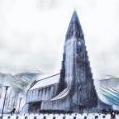Leaderboard
Popular Content
Showing content with the highest reputation on 11/26/2019 in all areas
-
Hi everyone! I will be so glad if you listen to my new album "10 Short Romances & Other Stories" on spotify :) I put the link below and I also upload one of the romances with the score here. Hope you enjoy! https://open.spotify.com/album/2wOwTIDkmCrwLyTZLN3qBb?fbclid=IwAR2YLudAo1HQyX2-drJfDYuEaIJXItf-_NcBxAwJdGDwcLhT2EVcichnynw1 point
-
Hello everybody! This is my latest piece, which was inspired by composers such as Arvo Pärt, Francis Poulenc and Samuel Barber. It was also a study into the use of artificial harmonics and textures. It's also important to note that the harmonics won't sound that clear in real life. However, I structured the piece so that the first parts of the music won't require clarity of the individual lines. The last third of the piece has almost no harmonics so that It becomes more "meaty". Anyways, I hope you all enjoy it, and as always, feedback is greatly appreciated!1 point
-
1 point
-
When I did a cleanup of my old files, I found the beginning (first 15 bars) of a waltz. My intention (back in 2010) was to write a piece as homage to Chopin on occasion of the celebration of his birthday in 1810. However, I abandoned it, because I had too many other ongoing projects. Instead of deleting it, I now finished it last week. I have to say that it was really a useful experience to write something in a Chopin-like style. The first phrases and their repetitions later on in the piece are of course very, very much Chopin, but there is also a lot, which is different. I would be curious to know what you think of it (thanks in advance for your feedback).1 point
-
It’s just about all been said. As with many things (in life) we set on a path and progress, sometimes realising we’ve led ourselves up blind alleys, have to backtrack and choose another route. In a way I see the technicalities of composing like running a map – the map contains all the procedures we’ve learned so far along with our experiences of them. We know where we can find what we need. But much remains unexplored. I’m a bit against over-jargonising theory. It’s there but to me it’s about formalising what the expounder thinks is good taste. We may have to expand on established academia if it proves inadequate. The composers in sound organisation quickly learned that the recording studio was their instrument of choice. (As someone once said, the revolutionary is nearer the prison than the professor’s chair - can I substitute “side-lines” for prison? But the notion holds good.) It’s also about communication to me (and I know a few disagree with me, sorry about that). Do you create entirely for your own satisfaction? Is the process more important than the result? Do you expect an audience to listen? Do you expect the audience to have expectations? Is music entertainment? Maybe we do them all. So I don’t think there’s a formal way to create a body of work. Our work is the sum total of our creative paths to date. Others may disagree.1 point
-
The struggle is real. We all will sure go throug tough periods, and that's normal. Composition is the most important thing I do in my life, and it often brings me a lot of joy. What usualy helps me through the moments of hardship is remembering the past moments of joy, without forgeting about the tough ones that preceeded and followed them. That helps put everything in perspective, and shows me that, although it's been tough, it'll be fine once again. This usually becomes more effective the more periods you go through, because you have a bigger "database" (couldn't find a better word, lol) to compare. Also, your pieces are very amusing, which is a hard thing to get. In case you need help with something, or just want to talk, feel free to message me. I hope you get better 🙂1 point
-
Ah, I see what you're getting at. Idealogically, some say our Western society is in the throes of postmodernism, which is largely a reaction to modernism. So, rather than spending energy looking for news ways of doing things, we focus mainly on not doing things the way they were done during the modern era. That's a stereotype, of course, but I think it does a fairly accurate job summarizing our cultural/artistic expressions over the past 30 - 40 years. What does this look like? Well, since the modern era was characterized by reason and logic, the postmodern era is characterized by de-emphasizing reason and logic. In music, we saw the advent of atonal music and the gradual displacement of traditional tonalities. Chaos and randomness began to be favored over form and beauty—outflows of logic. This isn't to say that any of this is somehow wrong or worse, however. It simply is the way things are. Personally, I think it's rather sad that atonality and tonality need be viewed as the products of opposing idealogies. Why should one be praised and the other devalued? Why should composers of serial or 12-tone music (i.e., atonal) be hailed as "innovative and cutting-edge," while composers of traditional diatonic harmonies be criticized as "commonplace and close-minded?" My goal as a composer is to blend these two. And maybe that's what will define our era: a melding of old and new. In any case, I do agree with you @Jean Szulc that we seem to be living off the ashes of the past, even if our goal is to wipe those ashes from our memory. Edit: the goal of postmodernism is to obliterate the ashes of modernism. I wasn't insinuating that's what we should be doing, but rather that's what society is doing.1 point
-
I was quite surprised to find so much Brazilian music on Youtube and elsewhere.... it's been uploaded in very recent years. Never once did I expect to find a Guarnieri Symphony. I had just a couple of recordings of other composers taken off-air from the BBC long ago (notably Nepomuceno's rather beautiful Symphony in G minor and one of Fernandez' Symphonies). Interesting that of South American countries, Brazil stands out and is doing most to promote its music now. Bravo to the Sao Paulo Orchestra, Neschling and his associates! I can't raise the same enthusiasm about Argentinian or Mexican music (with the exception of Revueltas). But it's more than just music, it's a reflection of the diverse cultural styles that make up Brazil (as I see it. Please excuse my opinions here). Someone might claim that Brazilian "classical" music was still heavily influenced by Europe until Villa Lobos burst on the scene. But not quite. Nepomuceno's work has that "saudade" about it that makes music of his times unique. But I won't keep on here. This is stuff you know anyway. I'll listen to Guarnieri's 5th Symphony later today. One thing is certain. I have to steer very clear of S. American and Caribbean music if I feel in the mood to compose. It can be most infectious! (Aside: I must also comment on your Adagio for Strings.... My last attempt to listen was interrupted. .... Well, you are a Brazilian composer.... :) .1 point
-
Wrote this last night, I'm kind of excited about it. Anxious to hear what you guys think.1 point
-
Hi DanJTitchener. Sorry to inform you but all works posted prior to the April-May 2016 renovation of this website have been deleted. I had posted 181 pieces. But fortunately I had backups on my PC of everything I had posted. I hope that you had backups too. If you don't have backups, contact chopin and he might be able to send you some of your posted pieces from his own backup.1 point
-
1 point
-
1 point
-
1 point
-
Pro Tip: Keep all your stuff backed up yourself; and keep backups of your backup. Don't rely on any one place to keep your work, let alone a site that's certainly not dedicated to being your storage locker. Just sayin'... any lost files should be a minor inconvenience at most.1 point






